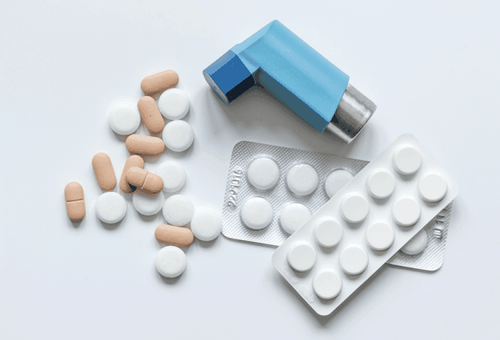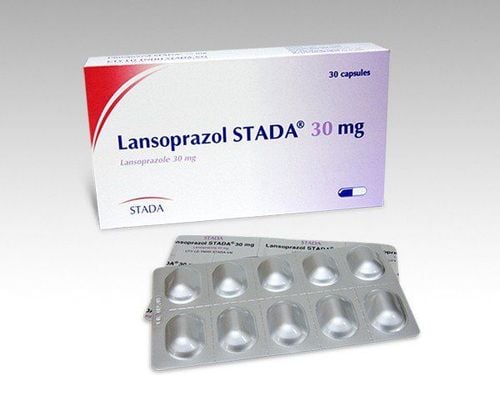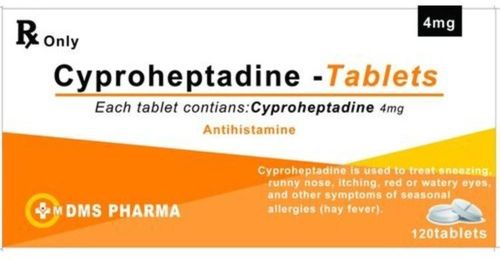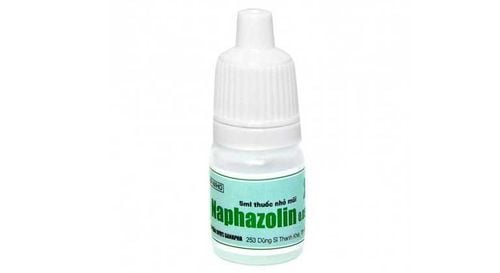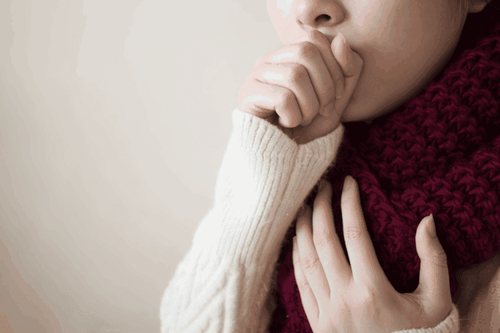This is an automatically translated article.
Posted by Master, Doctor Mai Vien Phuong - Department of Examination & Internal Medicine - Vinmec Central Park International General Hospital
Seasonal allergies can affect your ability to study and work with symptoms of sneezing, runny nose, watery eyes,... Especially, for people with COPD, the conditions become more and more severe. should be more serious.
1. Overview of COPD
Chronic obstructive pulmonary disease (COPD) is a group of lung conditions that often include chronic bronchitis and emphysema. COPD is often associated with a history of smoking.
This condition leads to airway obstruction and mucus production, often causing severe breathing difficulties. Symptoms include:
Persistent cough Wheezing Fatigue Loss of breath Coughing up mucus
2. Factors affecting COPD
2.1. Weather
Heat and weather can make COPD symptoms worse. Cold, dry or hot air can cause a COD outbreak
According to one study, extreme temperatures, below freezing and above 90°F (32°C) are especially dangerous for humans. have chronic obstructive pulmonary disease.
Cold weather
In cold, windy weather, you should cover your nose and mouth when outdoors. Using a mask or scarf will give you better protection, or you can simply interlace your hands and keep them over your nose and mouth.
Indoor, ideal air humidity is 40%. You can maintain this percentage with a humidifier.
Hot weather
According to experts, on extremely hot and humid days, there is no better way to avoid a COPD flare than to stay indoors with an air conditioner.
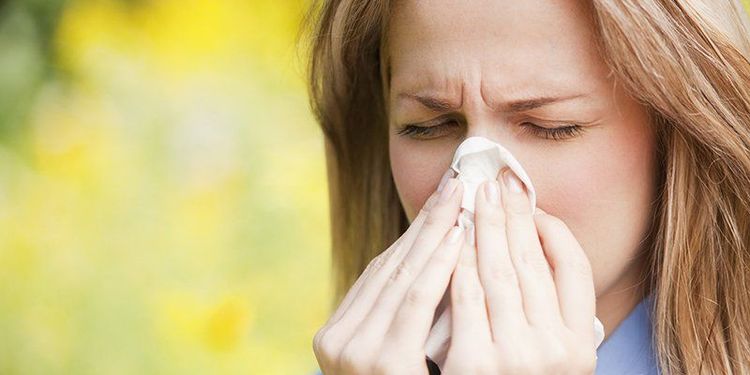
2.2. Air pollution
Whether outdoors or indoors, air pollution can irritate the lungs and cause a sudden flare-up of COPD symptoms. Dust, pollen, and smog can make symptoms worse.
Remedy
People with COPD can protect themselves from outdoor pollutants just as they do in cold air. Wear a mask if you must be outside. At the same time, limit exercise or other physical activities.
Some studies suggest that high levels of ozone in the air can lead to COPD flare-ups. In general, ozone levels are highest between May and September, and tend to be higher in the afternoon than in the morning.
3. Seasonal allergies
Seasonal allergies are very common. Millions of people face itchy, watery eyes and stuffy noses caused by seasonal allergies.
These symptoms occur when your immune system reacts to allergens you have inhaled such as pollen, dust, animal dander,...
Your immune system activates Some cells produce substances, including histamine. These substances produce allergy symptoms. People with COPD seem to be more sensitive to other respiratory conditions.
Avoid serious complications
The best thing you can do is avoid potential allergens.
Allergens are all around us, but it's better if you already know the triggers. You can take steps now to reduce your exposure to specific allergens that worsen your symptoms.
Find out before you go to another locale
Check weather websites that will provide information on current pollen and mold levels for your area and the area you'll be visiting.
You can plan outings on days with lower dust and mold levels to reduce allergy symptoms.
Stay indoors
Your best bet is to stay indoors when the air quality in your area is poor. For people with COPD, an air quality index above 100 can worsen respiratory symptoms.
Treat your symptoms
When you have allergy symptoms, such as itchy eyes or a runny nose, talk to your doctor about allergy medicine. Taking an over-the-counter antihistamine may work for you.
Medicines like diphenhydramine and cetirizine can suppress your immune response to trace allergens, potentially reducing shortness of breath.
Talk to your doctor about allergy symptoms and how seasonal allergies affect your chronic obstructive pulmonary disease. They can recommend a variety of treatments, which may include:
Try prescription allergy medications Use your inhaler more often during peak allergy season Allergy testing to see which allergens is causing your reaction Try allergy shots (immunotherapy) to relieve allergy symptoms Vinmec International General Hospital is one of the hospitals that not only ensures quality expertise with a team of medical professionals leading doctors, a system of modern equipment and technology, but also outstanding with comprehensive and professional medical examination, consultation and treatment services; civilized, polite, safe and sterile medical examination and treatment space.
Please dial HOTLINE for more information or register for an appointment HERE. Download MyVinmec app to make appointments faster and to manage your bookings easily.
References:
Combat allergy season. (n.d.). Jamieson DB, et al. (two thousand and thirteen). Effects of allergic phenotype on respiratory symptoms and exacerbations in patients with chronic obstructive pulmonary disease. DOIs:





